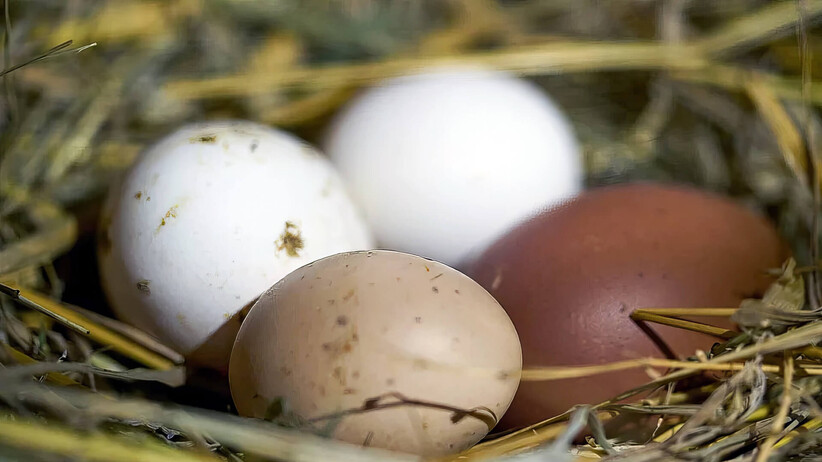Chickens require a lot of work, including keeping chickens in a proper nest box, cleaning their nesting boxes, etc.
But all that hard work pays off when you collect farm-fresh eggs every morning. Fresh backyard chicken eggs are of superior quality compared to store-bought eggs - with deep yellow yolks, thick texture, and excellent flavour. This is due to the homeowners with backyard chickens paying close attention to the laying hens, including their nutrition and nesting box. And what’s better, you can keep up the egg production for ages.
However, the most common problem people raising chickens face is storing fresh eggs so they last longer. Storing unwashed fresh eggs requires different procedures than commercial eggs. Fresh chicken eggs can get spoiled easily if chicken raisers don’t collect eggs at the right time, and they also need to wash and store fresh eggs carefully.
So, let’s look at the process more closely. Read on!
How Long Do Eggs Last?
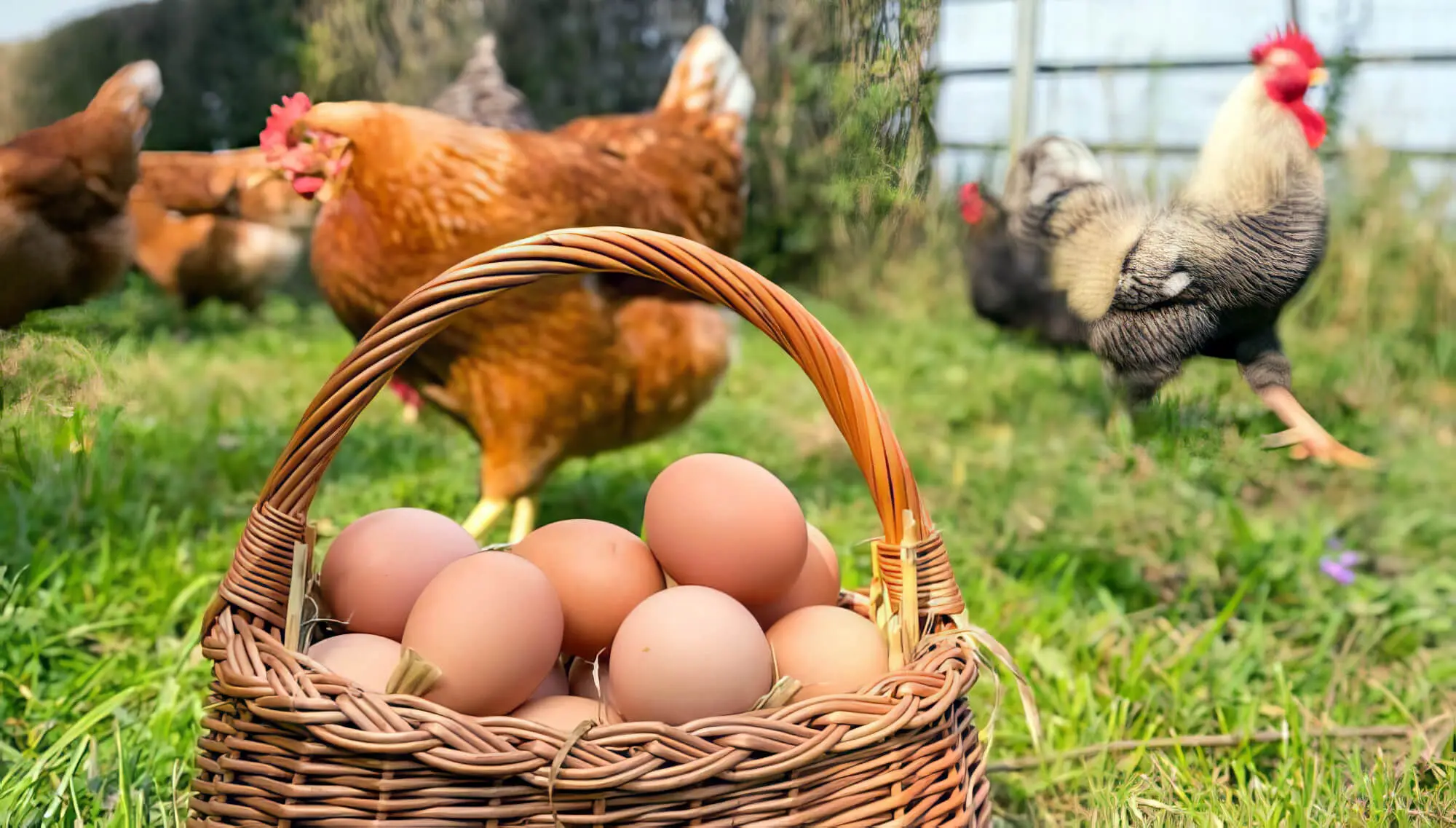
Fresh unwashed eggs can last up to a month at room temperature if they have their bloom intact and they’re properly cared for.
However, it is always better to refrigerate and wash fresh eggs. You can significantly increase their shelf life for up to three to six monthsif you store eggs in the fridge. Store unwashed fresh eggs directly in the fridge if you won’t consume them within the next few days, but cleaning the dirty eggs is recommended before consumption.
But we’re sure you won’t have to store your backyard eggs for six months - freshly laid eggs will be consumed quickly, especially due to their irresistible flavour and quality!
Refrigeration
When chickens lay eggs, their bodies produce a natural protective coating onto the fresh egg, commonly known as the egg’s bloom. The hen’s natural instinct is to protect her chicks while developing by laying a protective layer to seal the fertilised egg’s shell.
The egg bloom also protects the unfertilised eggs by preventing moisture loss and contamination. We remove this layer while washing eggs, which makes them susceptible to bacteria, especially when kept at room temperature. In the commercial egg industry, the workers wash and pasteurise after collecting eggs, making them last much longer than farm fresh eggs.
Even though pasteurisation kills bacteria at that time, it doesn’t guarantee the prevention of contamination in the eggs stored long-term. That’s why refrigerating washed eggs or otherwise, regardless of whether they’re home-grown or commercially produced, is considered to be a safe food practice.
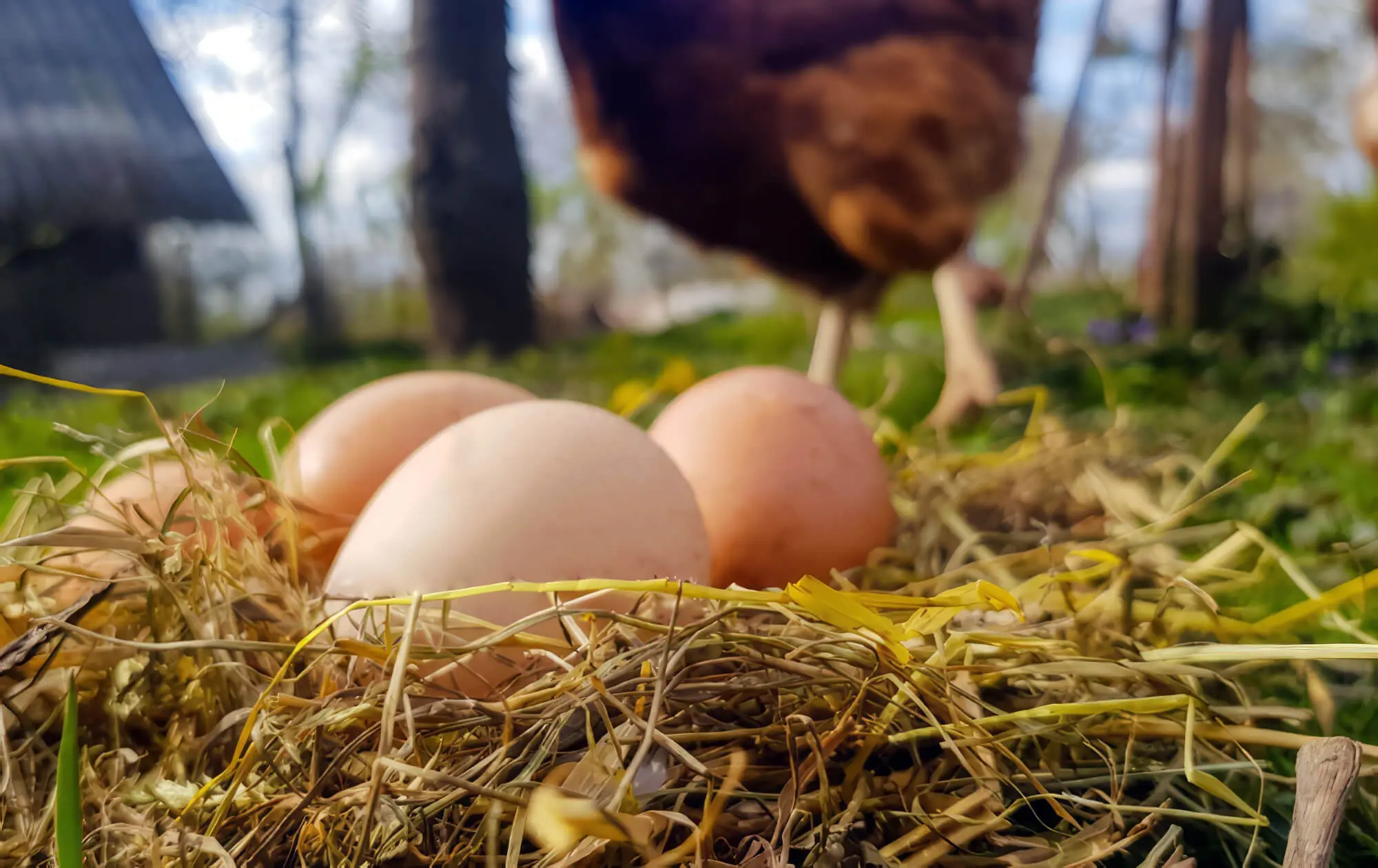
1. Keep the Eggs Clean
After your regular collection from the chicken lays, you’ll have a handful of dirty, soiled eggs, which require washing and refrigeration. As mentioned, the poop and feathers will be mixed with the bloom, which seals the eggshell’s pores.
Set the broken eggs (if any) aside and remove the contaminants with fine-grit sandpaper or brush - but remember just gently to clean them, don’t wash them with water. Washing the fresh eggs with a solution as harmless as mild soap and water will remove the bloom, which makes them susceptible to bacteria responsible for contaminating stored eggs.
2. Store Fresh Eggs
You’ll require sturdy egg cartons to keep the refrigerated eggs out of harm’s way, especially if you have a busy fridge with many items. Many food stores or local co-ops give away extra egg cartons for free, but you can also find some online.
And even though fancy cartons with unconventional styles may seem tempting, we recommend using your money wisely. A standard carton is enough to protect the eggs from your backyard flock.
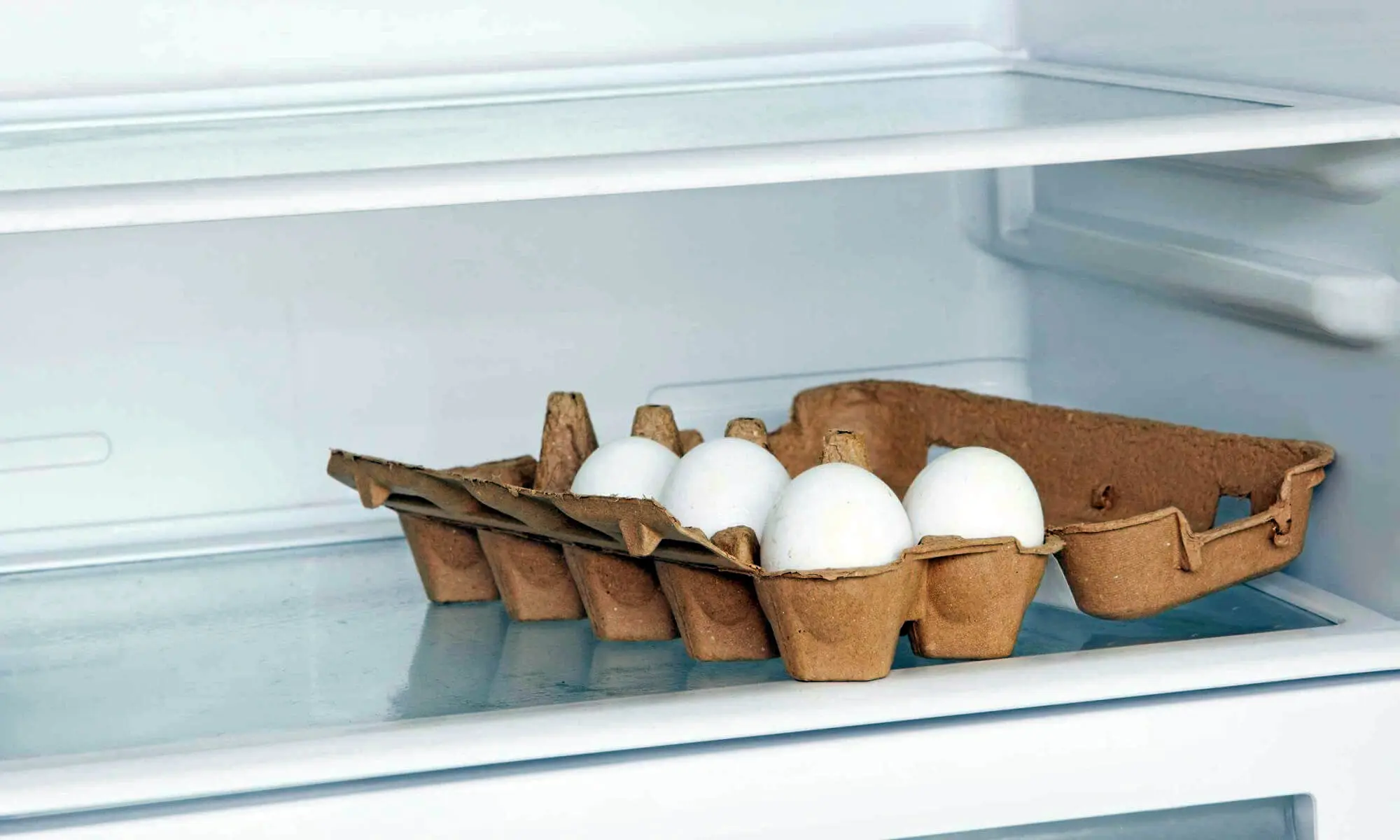
We also recommend keeping track of the collection date by writing them down on the carton, so you can consume the oldest eggs before they get spoiled. If only a few eggs are from the old collection, you can display them on the fridge counter designated for holding whole eggs. Alternatively, you can keep the old eggs in a decorative basket or egg skelter in the kitchen, especially if your room temperature is cool.
And finally, put the carton(s) into the refrigerator, wash the eggs in warm water before consuming them, and enjoy them for days!
Room Temperature Storage
We don’t recommend storing fresh eggs at room temperature longer than two to three weeks to ensure optimal eating quality. This is because the protein structure of the eggs deteriorates as they age, causing the white parts to become runny while the yolks become less round and stable. And eggs stored at room temperature degrade faster than those in the refrigerator - especially if it’s hot and humid outside.
As we’ve discussed, you can keep the eggs at room temperature if they are fewer and will be eaten in the next few days. However, if you have an ample egg supply, keeping them safely in a carton and storing them in the fridge is best.
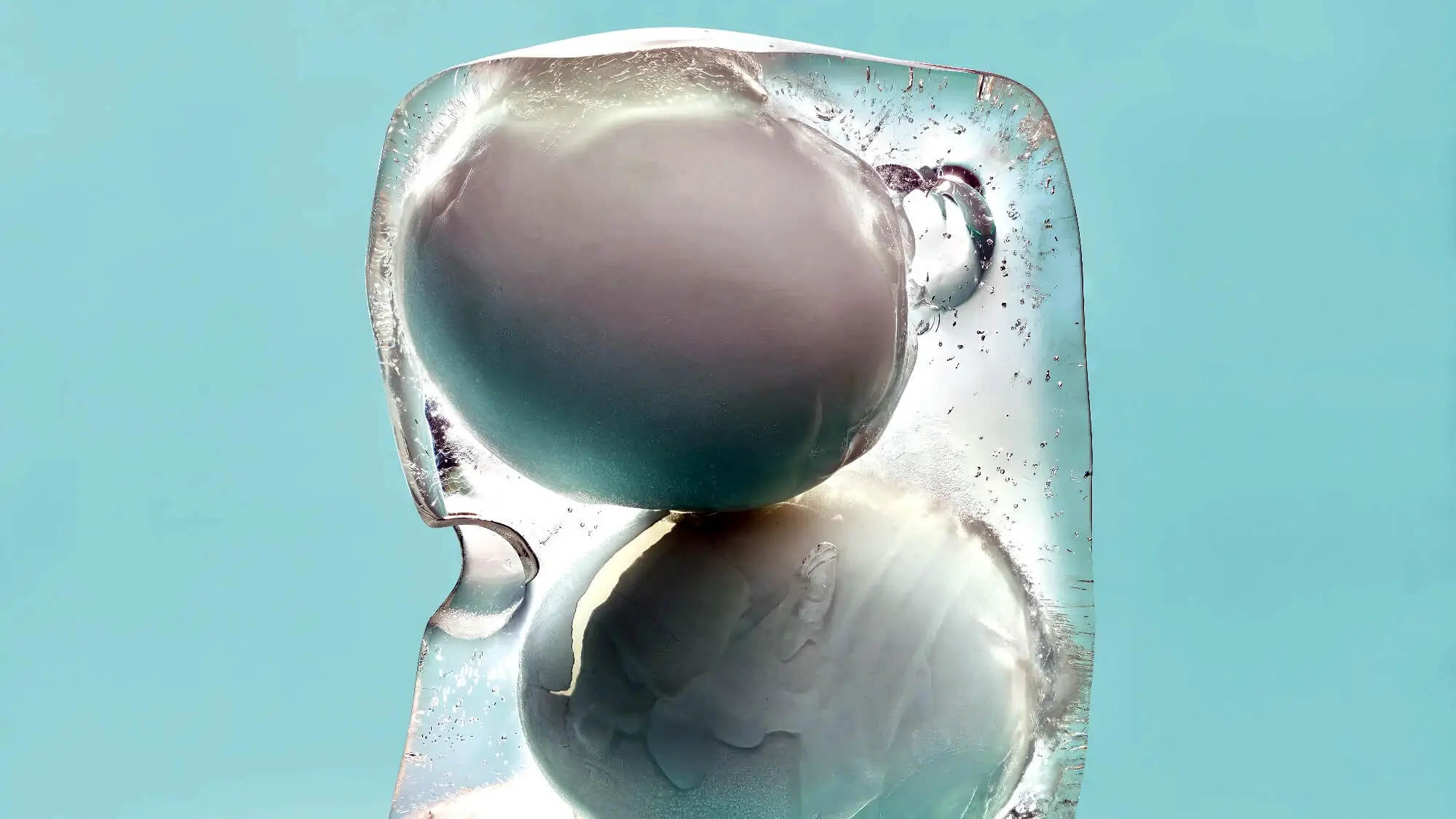
Freezing Eggs
Many people are left with extra egg yolks or expired eggs, which they eventually throw out. You can prevent this waste by freezing the eggs, which can be frozen for up to a year!
Before putting it in the freezer, you must crack the eggs out of the shell since eggs expand at cold temperatures, leading to breakage. Ensure you freeze only the fresh eggs, and keep at least half an inch spare space for egg expansion. And label the containers with the laying dates and volume.
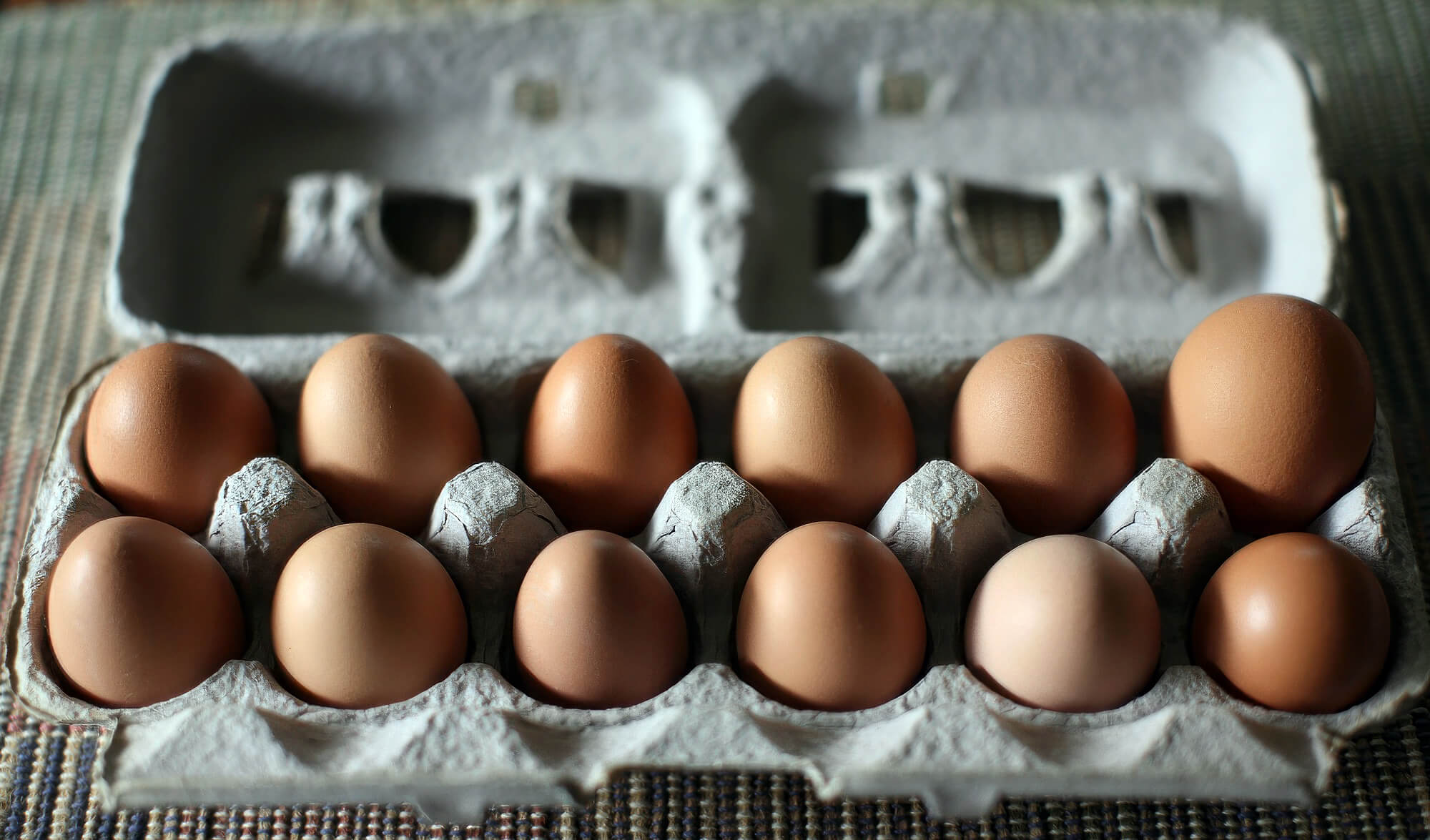
Egg Freshness
If you’ve mixed up your new eggs with the old ones, it’s time to do an egg float test to check their freshness. This is a foolproof method of preventing eggs from rotting and saves you the effort of thinking back to every collection day to figure out how old they are.
Start by filling a glass bowl with cold water and gently placing the unwashed eggs. If they sink to the bottom of the bowl, they’re perfectly fine and are probably from the fresh lot. Eggs about a week old will sink to the bottom, but they will stay up vertically. And even if they are partly floating in the middle of the bowl, they’re over a week old.
As a rule of thumb, the older the egg, the higher it floats. However, a moderately aged egg that’s not more than a few months is fine to consume, and they also have certain perks. For instance, hard-boiled eggs made from fresh lays have shells that are difficult to peel compared to older ones. So, you should steam or hard-boil the few weeks-old eggs instead of throwing them out.
If the eggs float close to the bowl’s top and fail the float test, don’t consume them since they’re probably rotten.
Tips For Long-Term Storage
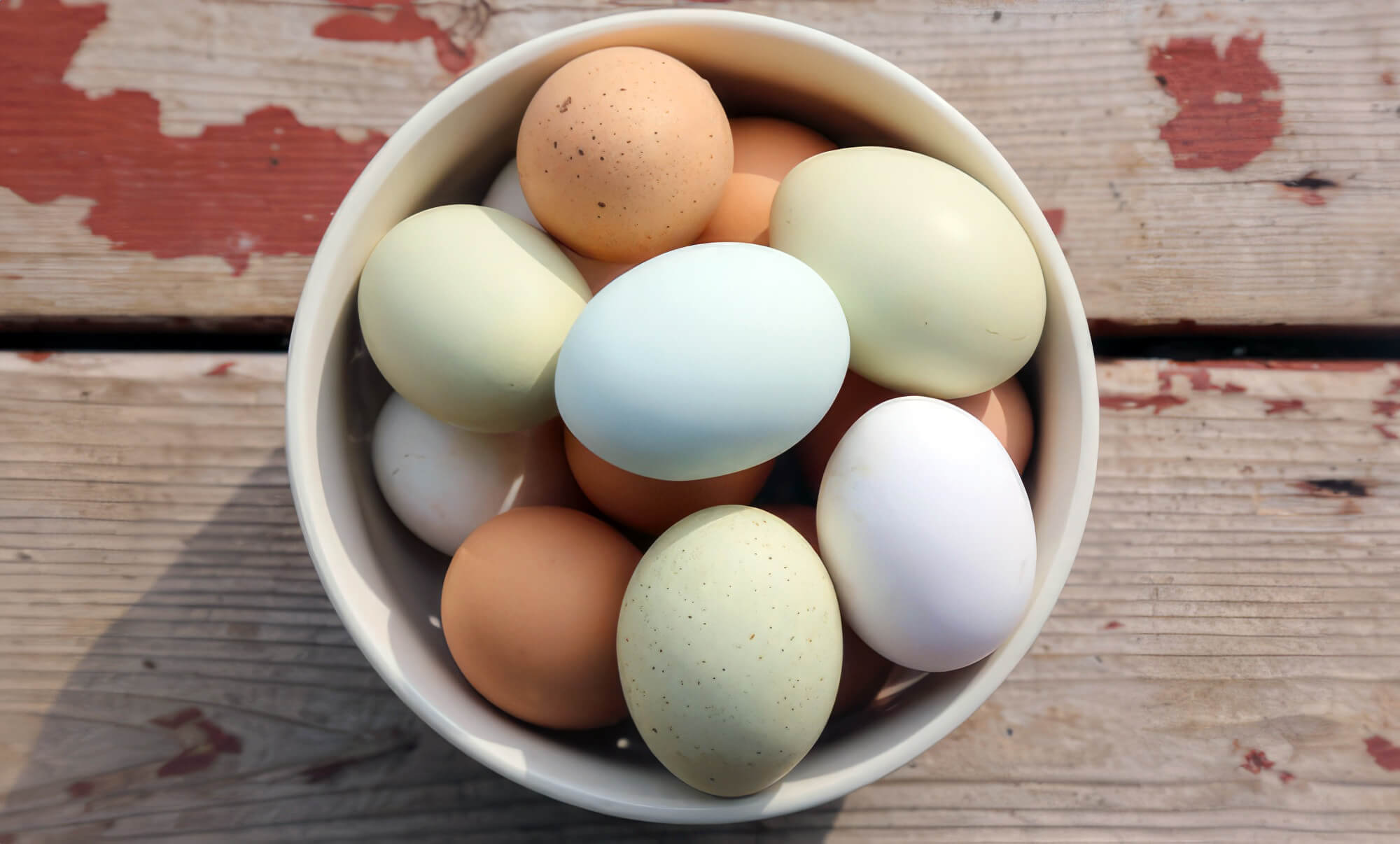
1. Placement
You can increase the shelf life of fresh eggs by placing the round end up with the pointy one facing down. There is an air sac inside the rounded end - and when the egg is placed with the rounded side facing up, it provides insulation to the egg and prevents moisture loss.
2. Pickling
This preservation method includes hard-boiling the egg and pickling it in a solution of preference. Vinegar is the most common solution to pickle eggs; it can help them last up to four months. However, many people are opposed to the pickling flavour.
3. Water Glassing
If the fresh eggs have intact bloom, you can cover them with calcium hydroxide or sodium silicate, whichever is readily available in your area. These prevent contamination and significantly improve the shelf life of your eggs.
Storing Freshly Laid Eggs
Having your chickens is a delight, especially if they’re laying eggs. However, you must know to reap their benefits by effectively storing fresh produce (here, eggs) sustainably. We’ve extensively covered the process of storing eggs and provided some tips to help you extend their shelf life, so try them out.
And if you need any supplies to keep your chickens healthy, including chicken food, worms, cages, feeders, etc., Planet Pet has got you covered. We deliver high-quality local products right to your doorsteps, so what are you waiting for? Order the yummiest treats and fun toys for your chickens today!

